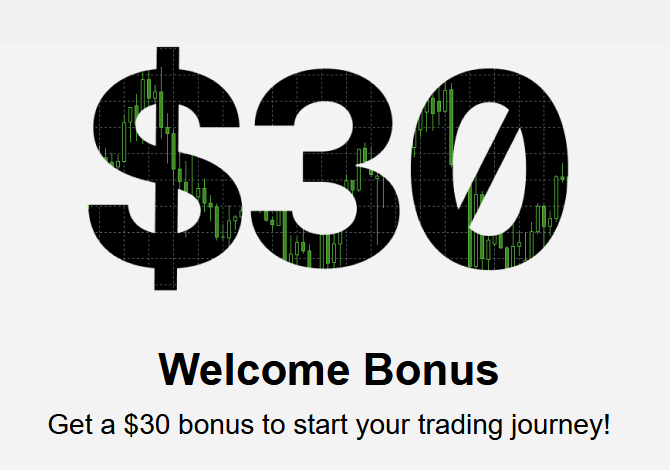In this Luno Review for Beginners, we will explain what Luno is, the features of Luno how to use it. We recommend this exchange if you are interested in buying/selling BTC, XRP, LTC or ETH.
You can buy, sell and trade Bitcoin, Bitcoin Cash, Ethereum, Ripple and Litecoin on the Luno exchange and it is used by more than 9 million people globally from over 30 countries.
This exchange was originally co-founded as “BitX” in 2013 by Pieter Heyns, Marcus Swanepoel, Carel van Wyk and Timothy Stranex. In 2017, it was acquired by Digital Currency Group and was then rebranded to Luno.
Luno offers flexible payment options and you can earn up to 7.6% p/a in supported cryptocurrencies (BTC, ETH or USDC) with Luno Savings.
As a Luno client, you also have access to the Luno Wallet, which offers industry-grade security and you can send and receive crypto at no cost to other Luno users.
With Luno API, you can develop trading bots and SDKs are available in Php, Go and Python. By using Luno API, you will be able to create multi-currency wallets, secure and monitor transactions, manage IPs and permissions and access low latency data streams. Luno uses a BIP70 Payment Protocol and is built on institutional-grade infrastructure.
If you are looking for reliable, updated market news, the Luno Learning Portal offers market insights, crypto guides, notes on Luno updates and more. This exchange is suitable for beginners, businesses, developers and professionals.
What is a cryptocurrency exchange platform?
Before you can buy or sell cryptocurrencies, you need to create an account with a crypto exchange that offers the cryptocurrencies you are interested in trading.
It is estimated that there are currently approximately 380 exchanges, consisting of both centralized and decentralized exchanges, but the exchange you choose depends on the assets you invest in, whether you’re interested in DeFi and the types of tools and features you’re looking for.
If you have ever traded Forex or other assets with an online broker, you will notice that a crypto exchange is much the same because it also provides tools, accounts and platforms for buying, selling and trading digital currencies.
Crypto exchanges are similar to Forex brokers, but you will encounter many new terms and features, such as “Staking”, “DeFi”, “NFTs” and “Liquidity Pools”. That is because cryptocurrencies and blockchain technology have revolutionized the way people do online banking and instead of just withdrawing your cryptocurrencies, you can now store them in yield-earning wallets, spend your tokens on DeFi apps, stake them to earn interest, add them to liquidity pools, borrow tokens to other people and much more.
The crypto exchange you choose will most likely offer various options for withdrawing your funds, allowing you to either withdraw it directly to a bank account or a third-party crypto wallet, or you may be able to transfer it to a special bank card and withdraw it at an ATM. Some exchanges allow you to transfer crypto to gift cards and vouchers and others work through applications to allow people to make direct payments to merchants and other people.
What does Luno offer?
Luno Exchange
- 25 crypto-crypto and crypto-fiat pairs
- Lower fees with higher trading volumes
- Deep liquidity and tight spreads
- Low-latency trading with live price updates
- Variety of charts and tools available
- Available as a mobile app or a desktop platform
Markets:
Bitcoin pairs:
- BTC/USDC
- BTC/EUR
- BTC/GBP
- BTC/AUD
- BTC/IDR
- BTC/MYR
- BTC/NGN
- BTC/UGX
- BTC/ZAR
Ethereum pairs:
- ETH/USDC
- ETH/BTC
- ETH/EUR
- ETH/GBP
- ETH/AUD
- ETH/IDR
- ETH/MYR
- ETH/NGN
- ETH/ZAR
Ripple pairs:
- XRP/BTC
- XRP/MYR
- XRP/NGN
- XRP/ZAR
Litecoin pairs:
- LTC/BTC
- LTC/MYR
- LTC/NGN
- LTC/ZAR
- BITCOIN CASH
- BCH/BTC
- BCH/MYR
Crypto pairs:
- LTC/BTC
- BCH/BTC
- XRP/BTC
- ETH/USDC
- ETH/BTC
- BTC/USDC
Luno Wallet
- Seamless integration with the Luno exchange
- Software wallet that uses advanced blockchain technology and security protocols
- Supports Bitcoin, Bitcoin Cash, Ethereum, Ripple, Litecoin and USDC
- Secure storage of private and public keys
Is Luno Safe to Use?
Wallet security
- 2FA (two-factor authentication): allows users to add an OTP request to their accounts by using another device, such as a mobile, to receive the OTP which is then entered in addition to the account password
- Multi-signature wallet: requires authorisation from more than one person for a transaction to be sent. This is especially useful for business and institutional accounts.
- Wallets are also secured by using a hotwallet system whereby Luno holds one key and Bitgo holds another key, ensuring that if either Luno or Bitgo gets hacked, a client’s wallet cannot be accessed.
- The Luno wallet is encrypted by SSL and PGP.
- Client funds are held in encrypted cold storage wallets.
Luno Savings
- Earn interest with your Luno wallet
- Up to 7.6% yield per annum
Brokerage services
Luno prioritizes client security and is compliant with the BSI Information Security Standard, but it is not a centralized exchange and instead uses a dealer network model where buyers and sellers are connected in pairs.
Luno API
- Application Programming Interface
- Connect to the Luno WebSocket for real-time market data
- Use API to programme trading bots
- Use SDKs in Python, Go and Php
- Create multi-currency wallets
- Monitor transactions and notifications
- Manage key permissions
- Integrate crypto payment systems for merchants
- Free to use
Luno Learning Portal
- News updates on tech, regulations and markets
- Weekly roundups
- Market insights
- Guides on crypto trading for beginners and pros
- Articles on how cryptocurrencies work
- A-Z Crypto Glossary
- Updates on Luno developments and products
Luno Store
- Verified apps that can be used to spend Bitcoin and other cryptos
- Apps include: BitGive (NPO), Ledger and Bitbox (hardware wallets), SunExchange (earn Bitcoin through solar power), Moon (online shopping) and Bitrefill (eGifts, gift cards and payments).
How to exchange cryptocurrencies on Luno?
You can easily exchange cryptocurrencies on Luno by first opening an account. Once you have created and verified your Luno account and wallet, you can fund your account and trade on the exchange (either on a desktop or on your mobile device).
How to buy Bitcoin on Luno?
The difference between Luno and most other exchanges is that you can buy Bitcoin with Fiat currencies on Luno, which makes it much easier to buy BTC or ETH.
Once you’ve created, verified and activated your Luno account, you need to link it to your bank account and create your wallet.
After your Luno account has been funded, you will be able to buy crypto from the Luno exchange.
Luno prioritizes user-friendliness and plans to make major cryptocurrencies like BTC accessible to everyone.
How to create a Luno account?
- Open the homepage and click on the “sign up” button
- Enter your email address and password, or continue with your Google account
- Verify your email address and phone number
- Enter your 4-digit code
- Once your account is activated, you can fund it and start trading!
How to download the Luno app?
- Go to the Luno website and click on the “App Store” or “Google Play” button
- Alternatively, Launch App Store or Google Play on your mobile device and search for Luno
- Download the app onto your device
- Once you have the app on your device, you can log in to your account.
What are the fees on Luno?
Luno fees depend on market conditions and may vary from time to time. Fees will depend on where you are based, your account currency and network traffic on the exchange.
When you send and receive crypto using the Luno app or another user’s email address, it will be free, but sending crypto to another address will be charged.
Fees are also charged for withdrawing fiat currencies, but the amount charged will depend on the size of your transaction and the country you live in.
Deposits may also incur a fee and a fee is charged for instant buys/sells.
All maker fees on the Luno exchange are 0% and trading fees vary from 0.05% to 0.1%. A small brokerage fee will be added to the quotes rates but higher trading volumes have significantly lower fees!
You will find more information on fees by going to the website and choosing your country under the “Fees” section.
Where is Luno available?
Luno is currently available in the following countries:
- Malaysia
- Nigeria
- Indonesia
- South Africa
- Liechtenstein
- Estonia
- Finland
- Austria
- Switzerland
- Portugal
- Hungary
- Lithuania
- Italy
- Slovakia
- United Kingdom
- Poland
- Slovenia
- Cyprus
- Monaco
- Iceland
- Netherlands
- Malta
- Ireland
- Jersey
- Sweden
- Isle of Man
- Czech Republic
- Greece
- Romania
- Latvia
- Norway
- Denmark
- Croatia
- France
- Guernsey
- Spain
- Belgium
- San Marino
- Bulgaria
- Luxembourg
Conclusion
Luno is focused on security and efficiency and strives to provide crypto markets with deep liquidity for major cryptocurrencies. What Luno may be lacking in DeFi, it makes up for in competitive pricing, high-quality resources and high-yield savings.
This is one of the safest crypto exchanges in the market and we highly recommend using Luno if you’re thinking of adding BTC, LTC, XRP, ETH or BCH to your investment portfolio.
We hope that this Luno Review for Beginners was helpful. Remember to trade responsibly and good luck with your investments!
Table of Contents
Toggle



